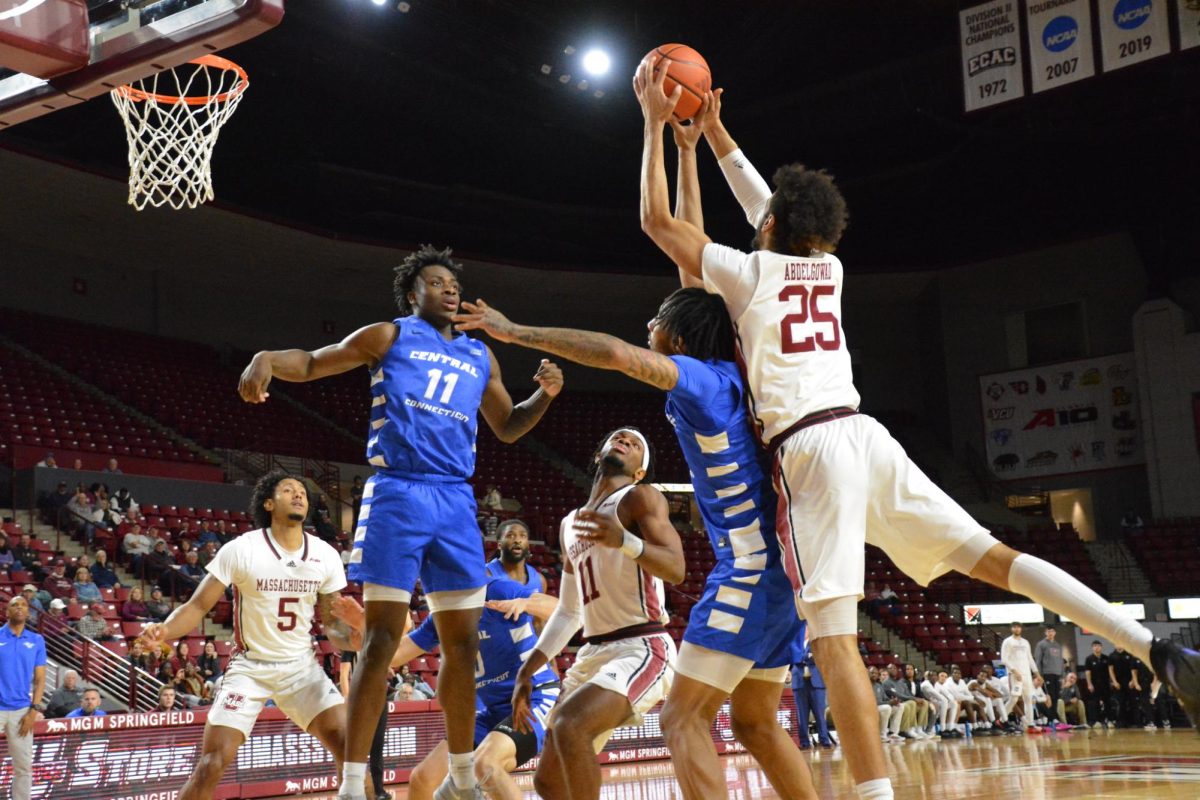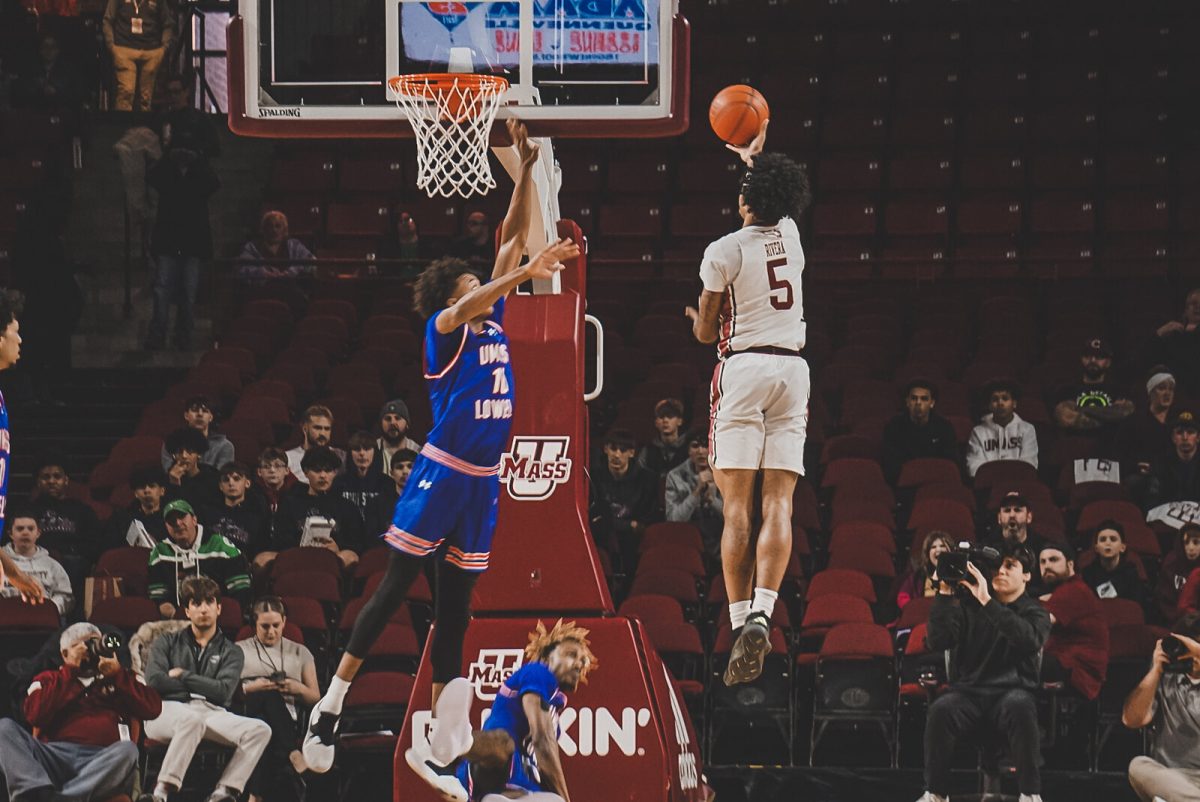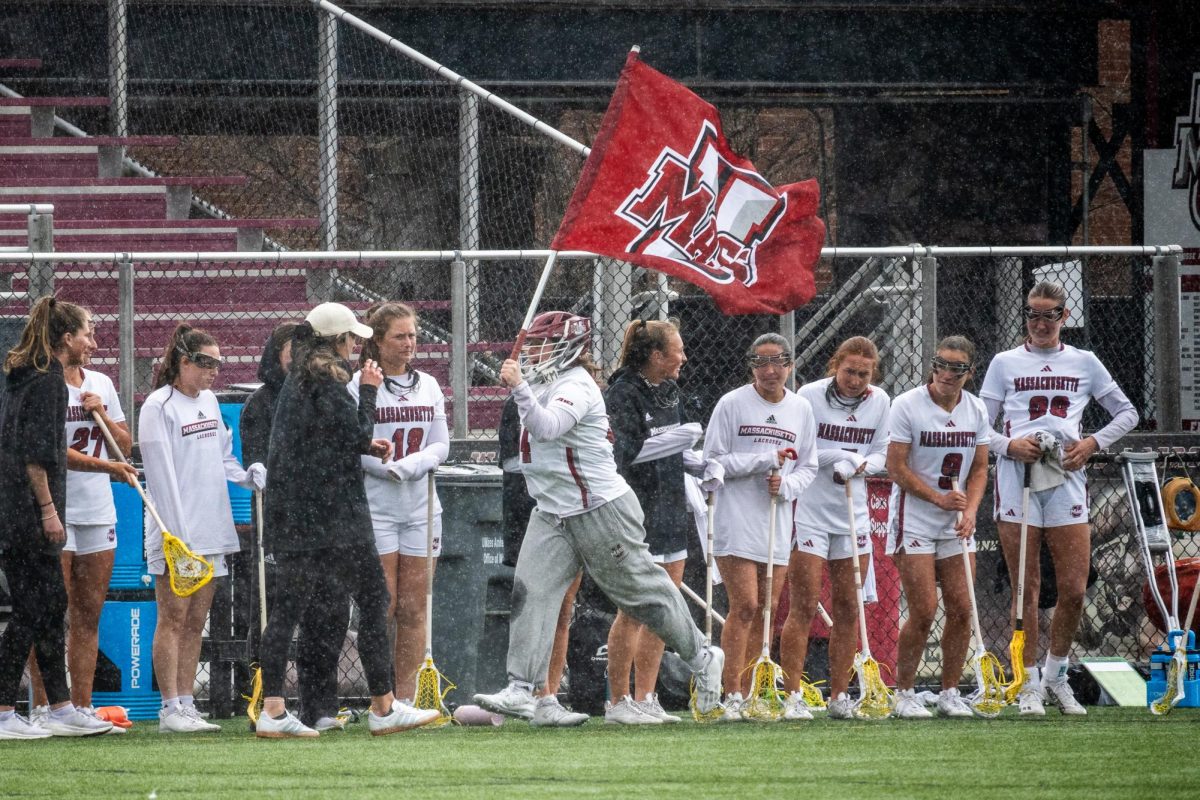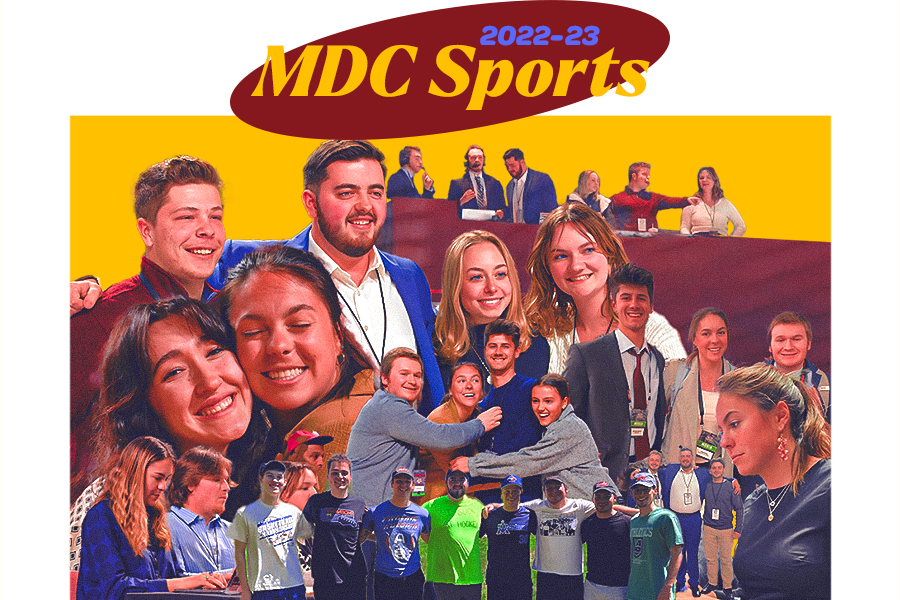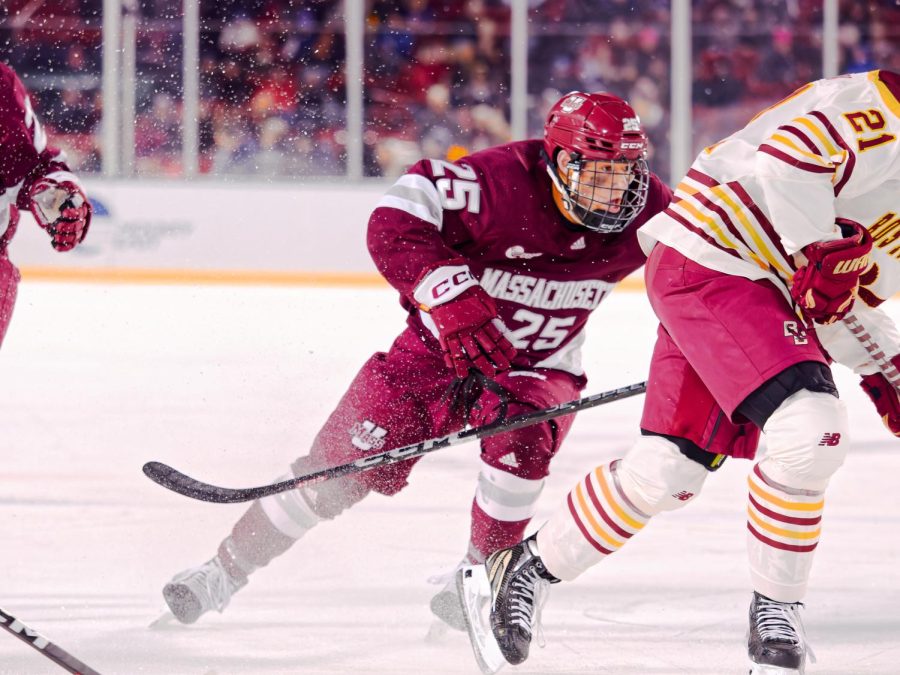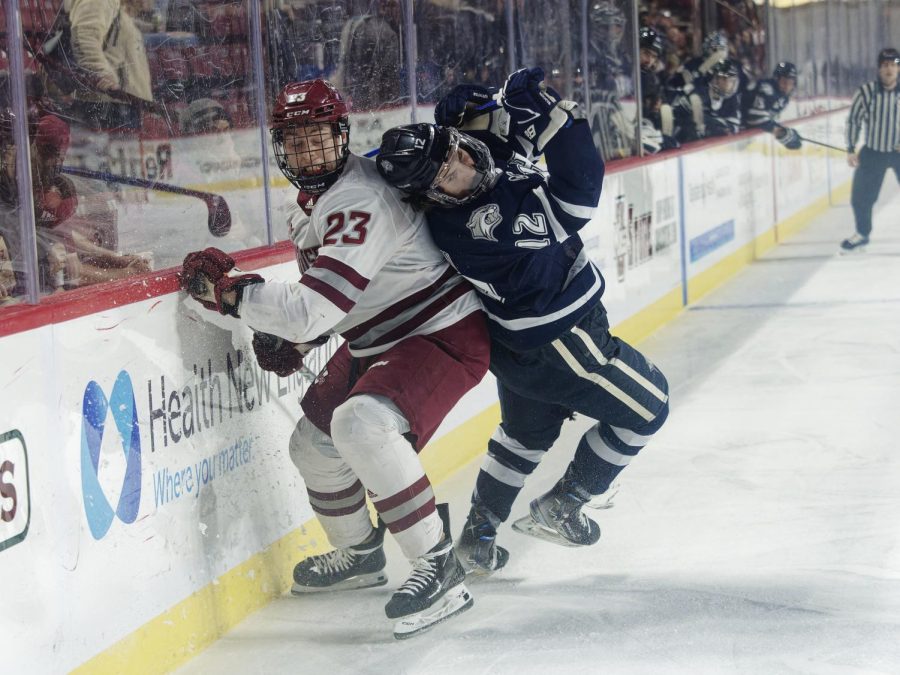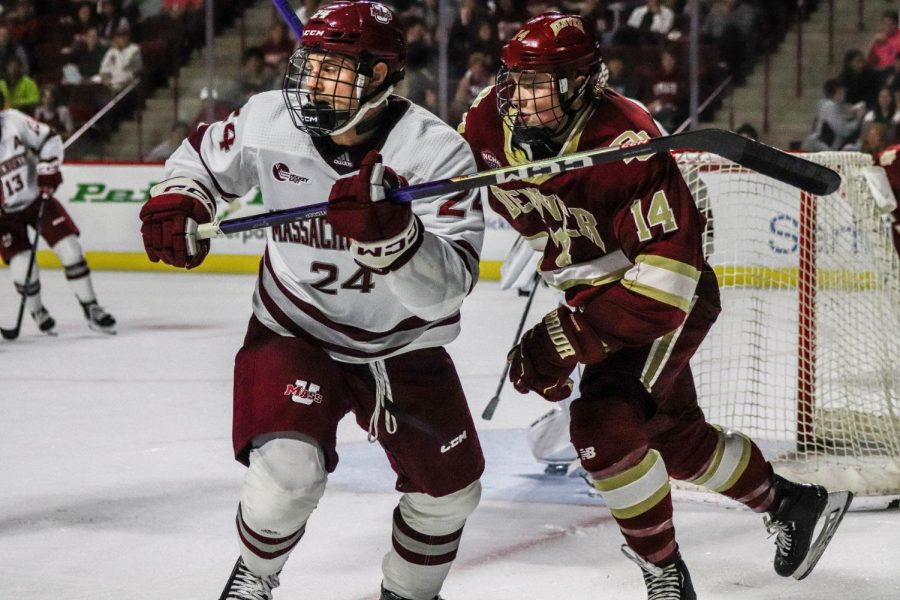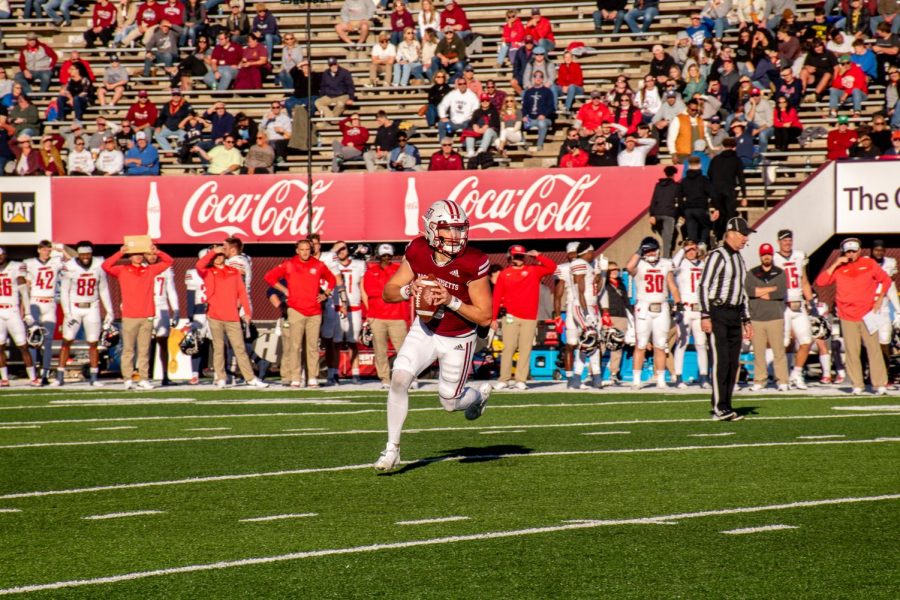
It was sometimes dreadful watching the Massachusetts men’s basketball team last season.
Aside from the fact that the Collegian press conference seat is stationed right next to the wicked loud band, I had to watch a shaky UMass side parade around the 3-point line on offense and never get anything accomplished.
Here’s how most offensive drives went last season: former guard Gary Correia would bring the ball up and dish out to former guard Anthony Gurley. Gurley, following the guidelines of UMass coach Derek Kellogg’s dribble-drive offense, would literally dribble the ball twice and drive into the lane. If he made it past a defender, which was often not the case, he would lay up a 50-50 ball that may or may not have sunk into the net. Otherwise, he would begin a series of passes with the rest of the team – the ball became a hot potato for the Minutemen to bounce around.
And it showed something that the team was severely missing last season – they lacked any team chemistry.
Players didn’t have trust in each other to take the shot, or drive in, but rather bounced the ball around the 3-point line until Gurley hawked up a Kobe Bryant-esque fade-away jump shot that was average at best. There wasn’t any trust in each other, which limited their offensive ability throughout the season.
This season, there’s a new mentality for Kellogg and the Minutemen. At a recent practice last Friday, I kept hearing the term “brotherhood” tossed around by both the players and Kellogg. And that is what the team is trying to become. It’ll be less of players joined together for the sake of playing, but actually a team of players brought together to have fun and win games.
And it’s kind of exciting.
I would be lying if I said there wasn’t a certain stigma with the team this year. Players appear more comfortable around each other and the coaches, and definitely show a lot more smiles. However, as Kellogg noted, the team has yet to play a game in it season, which means the tensions that arise from lost battles has yet to sink in with the team.
But there still remains this interesting dynamic missing from last year’s side, something which might translate into wins. At the end of the 2010-2011 campaign, center Sean Carter expressed his dislike for how the locker room was acting towards the end of the year, noting that the team was a little shaky off the court. Kellogg, and returning Minuteman Andrew McCarthy, said that is not the case this year.
Which means what? Well, for starters it might not show a collapse like last year’s team had. I mean, the team lost by a point to then-No. 24 Temple before dropping to Fordham – which had yet to win an Atlantic 10 game at the time – just after. That kind of collapse may not spring up if the team has this “brotherhood” mentality.
The “brotherhood” mentality isn’t limited to just off the court either. For the past two seasons, Ricky Harris and Gurley were the go-to men for the offense. A lot of faith was put into these guys to rack up high numbers and lead the Minutemen.
But from what Kellogg has preached in the early part of the season, there isn’t a go-to guy like before. Sure he has sights on Freddie Riley to go on a scoring tear, and he sees Javorn Farrell as a strong candidate to garner some points, but there isn’t one prolific, stand-out player like before. This – coupled with the elimination of the dribble-drive offense – will offer an offensive side where the players trust and rely on each other more heavily. And if there is this “brotherhood” mentality, it might just translate into enough chemistry that playing on the court will be like getting together for dinner – a simple task, if all the right pieces are laid out correctly.
After last season, which had its moments but ultimately lost its glamour when the same offensive tactics kept being employed, it’s exciting to know that there is this new mentality. If the players are in cohesion like they appear at practice, and if they truly have this “brotherhood” mentality, then it could be a fantastic season to watch. Fluid play and cohesive moments through the court would offer a hell of a season to cover.
But like any brother-relationship, there’s bound to be some problems. Siblings argue all the time, don’t they? There’s a good chance that after a few losses set in, that the team will begin to lose some of the high-morale and trickle off just a bit. If too much faith is put into each other, what happens when things turn sour? What happens when those offensive and defensive drives collapse and the entire team has to blame the “brotherhood?” Morale is surely to decline if the entire team is put to blame, and if all players are disappointed both in themselves and others.
Regardless of what problems may arise with this new “brotherhood” mentality, it’s going to be exciting to watch. It’ll be exciting to watch some UMass basketball where players trust each other. If this “brotherhood” translates to the court, I’ll gladly keep my ill-placed seat at the press table at the Mullins Center. I’ll crane my neck if it means I can see some quality, cohesive and fluid basketball on Jack Lehman Court.
This “brotherhood” idea might not bring the team wins, but it does make the game – a game which seems all too lost in the professionals – more entertaining.
Herb Scribner can be reached at [email protected] and followed on Twitter @MDC_Scribner.





